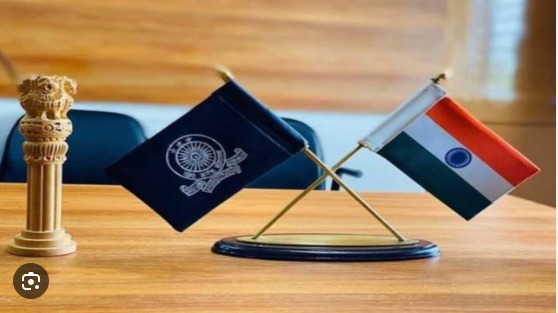Over the course of a year, she diligently studied the static portions, basic General Studies, and current affairs, taking inspiration from toppers’ interviews on YouTube.
New Delhi: Securing a coveted position in the esteemed Indian Administrative Service (IAS) through the highly competitive UPSC exam is a monumental challenge, one that often causes many hopefuls to abandon their dreams. Among the multitude of applicants aiming for success in the UPSC Civil Services Exam (CSE) to become IAS, IPS, or IFS officers, only a select few—barely a fraction of the total—manage to secure a spot on the final list.
While conventional wisdom suggests that coaching is the preferred route for UPSC preparation, some choose the road less traveled, relying solely on self-study to achieve success. Enter Laghima Tiwari, a remarkable individual who defied the odds. With a degree in electronics and communication engineering from Delhi Technological University, Laghima made history by securing an impressive All India Rank 19 in the UPSC CSE 2022, all in her very first attempt.

Hailing from the quaint district of Alwar in Rajasthan, Laghima’s journey to success is a testament to grit and determination. After graduating in 2021, she dove headfirst into UPSC preparation, opting for a self-directed approach rather than traditional coaching. Over the course of a year, Laghima meticulously studied static portions, explored the intricacies of general studies, and kept up with current affairs. She drew inspiration from the success stories of past toppers shared across various platforms, particularly YouTube.

Opting for anthropology as her optional subject for the UPSC Mains exam, Laghima relied on rigorous self-study and simulated test scenarios to master the complexities of the examination, all without formal coaching. Central to her journey was the unwavering support of her parents, whose encouragement and belief in her abilities were the cornerstones of her success. Laghima emphasized the importance of cultivating a clear mindset from the outset, enabling aspirants to channel their energies wholeheartedly into exam preparation.

In imparting wisdom to future aspirants, Laghima extolled the virtues of adaptability, urging them to craft a flexible preparation strategy that accommodates the ebb and flow of the exam journey. Emphasizing the cardinal principles of consistency, persistent effort, and diligent revision, Laghima emphasized the need for aspirants to glean insights from their mock test errors, subjecting them to rigorous analysis to unearth areas for improvement.

Furthermore, Laghima underscored the imperative of seamlessly transitioning to Mains exam preparation post-preliminaries, advocating for a proactive approach even for those teetering on the cusp of success. In essence, Laghima’s journey serves as a beacon of hope for aspirants, a testament to the transformative power of perseverance, self-belief, and a resolute commitment to one’s goals.





